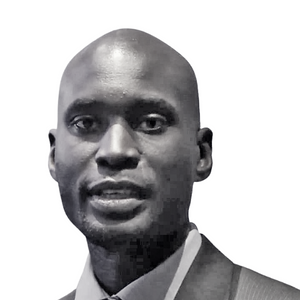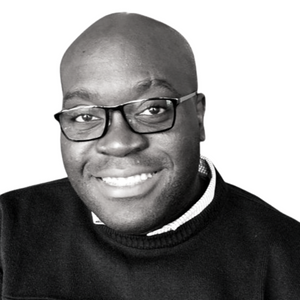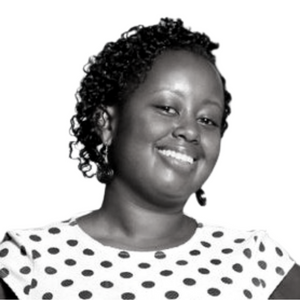May 17, 2022
HVAD 2022: An HIV vaccine developed with the people it seeks to benefit most
On this HVAD, our colleagues share perspectives on how an HIV vaccine can be developed with the people it seeks to benefit most.
On this HIV Vaccine Awareness Day (HVAD), our colleagues share perspectives on how an HIV vaccine can be developed with the people it seeks to benefit most. They acknowledge that while we need great science, we also need people who can take it into the future. In this HVAD web piece, the three authors underscore why it’s important to have scientists from the region that carries the heaviest burden of the HIV pandemic — Africa — take the lead in fashioning, driving, and supporting the scientific research enterprise. Check out our #HVAD2021 Campaign Toolkit and follow the hashtags #HVAD & #EndHIVEpidemic on our social media channels.
Yes, we need to have great science done, but we also need people who can take it into the future
By Benard Kulohoma and George Owino
The various stages of HIV vaccine discovery, design, and development require that scientists are versatile enough to complement each other and collaborate successfully. What is more important is to have scientists from the region that bears the brunt of the HIV pandemic — Africa — take leadership in the development of vaccines and biomedical preventions strategies to address HIV and other important global health challenges.
 Benard Kulohoma
Benard Kulohoma
What could be already obvious in the field of HIV research today, is that Africa is contributing far more than samples to scientific research. Take for instance, the discovery of broadly neutralizing antibodies (bnAbs) — highly specialized antibodies that can neutralize a broad swath of HIV isolates — was significantly advanced by longitudinal studies conducted in close collaboration with scientific partners in Africa. Moreover, the understanding of how bnAbs evolve in the course of HIV infection in the rare people who make them — and the process that an HIV vaccine will need to accomplish in uninfected people — was also advanced by longitudinal studies conducted in close collaboration with scientific partners in Africa. Today, the continent’s scientists are actively engaged in developing and testing novel HIV vaccine candidates. However, active engagement is not enough to take the science to the next level, leadership is!
 George Owino
George Owino
In 2021, with support from the U.S. Agency for International Development (USAID), IAVI commenced a Leadership Development Program (LDP) that will position African and Indian scientists to take the lead in fashioning, driving, and supporting the scientific research enterprise. The new initiative offers opportunities to early- and mid-career scientists to develop their skills to become the next generation of science leadership in their respective fields of expertise.
Now in its first cohort, LDP enrolled 30 participants from African and Indian clinical research centers (CRCs), who range from laboratory scientists to clinical trials specialists. In order to develop well-rounded scientists, LDP seeks to equip its participants with enhanced skills around nine core programs including: soft skills, scientific communication, research ethics, data analysis and tools, basics in immunology, clinical science, social and behavioral research, epidemiology, and clinical trial operations.
LDP builds on the commitment by IAVI’s ADVANCE (Accelerate the Development of Vaccines and New Technologies to Combat the AIDS Epidemic) program to foster a core group of researchers and scientists in African and Indian institutions who are contributing to the global effort to identify, evaluate, and implement HIV vaccines and biomedical prevention products toward ending the HIV epidemic. ADVANCE is a 10-year cooperative agreement with USAID, through the U.S. President’s Emergency Plan for AIDS Relief (PEPFAR). ADVANCE continues to invest in African-led HIV prevention science by working closely with a network of independent but interconnected centers of excellence, known as CRCs. This partnership emphasizes the shifting of leadership to African investigators, allowing the research to be driven by Africans for Africa.
On this HIV Vaccine Awareness Day, it remains essential for all of us to recognize that if we are to succeed in the efforts toward finding an HIV vaccine, we must support emerging leadership. As Margaret McCluskey, RN, MPH, MPS, senior technical advisor for HIV vaccine research at USAID puts it, “Yes, we need great science done, but we also need people who can take it into the future.”
Benard Kulohoma, Ph.D., is the director, organization capacity development at IAVI, while George Owino is a program manager at IAVI.
SBR: A participant-centred approach to HIV Vaccine discovery
By Yvonne Wangũi Machira
How do you employ a participant-centred approach in the search for a vaccine to prevent HIV? How do you accelerate the development of vaccines and new technologies to combat the AIDS epidemic, while still guaranteeing that access to and uptake of these technologies remain acceptable by the population you seek to benefit with them? While new models for delivery of HIV prevention are undoubtedly essential, the need for participant-centred programming cannot be over-emphasized. So is the need for research that increases cultural relevance and enhances applicability and use of efficacious HIV prevention strategies.
 Yvonne Wangũi Machira
Yvonne Wangũi Machira
One way to achieve this is by incorporating socio-behavioural research (SBR) within HIV prevention programmes and clinical research. By so doing, we create an opportunity to recognize communities for their agency role rather than the assumed role of being passive beneficiaries or merely research participants. SBR is the study of human behaviour and social systems. SBR measures, describes, explains, and predicts changes in social and economic structures, attitudes, values, and behaviours and the factors which motivate and demotivate individuals and groups in society. In the health sector, SBR explores how these factors might impact health outcomes.
On this year’s HIV Vaccine Awareness Day, as we recognize the many volunteers, community members, health professionals, and scientists who are working together to find a safe and effective vaccine to prevent HIV, it is important to recognize the substantial opportunity to improve participation of volunteers through SBR. We also recognize that with SBR, there’s great potential to ensure a more sustainable response with each individual actively participating in their own care and meaningfully contributing to the production of knowledge on HIV prevention. This way we shall tap into the resourcefulness, resilience, and knowledge of the participants and their communities, to strengthen research and programmes, making them more relevant, appropriate, and effective. Indeed, an HIV vaccine is achievable — a vaccine developed together with the people it seeks to benefit most.
Yvonne Wangũi Machira is director of socio-behavioral research at IAVI.